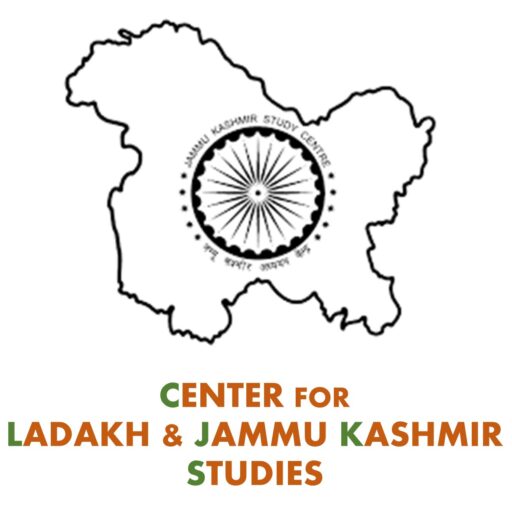
State of Jammu Kashmir and its new relationship as a quasi-federal as describe in Indian Constitution
Adv. Vijay Bhagdikar
Jammu Kashmir Study Center, Nagpur Chapter
M. 9657709096
The problem of Jammu Kashmir was never been a legal issue but a political issue. Over the year this issue could not solved because of lack of political will. No of provisions of Constitution of India were not applicable to State of Jammu Kashmir. The temporary provison of Article 370 and 35A were creating obstruction for normal relationship among State and Centre. The Article 370 and 35A was hurdle and creating hindrance for integration of State with Union.
On 5th of August 2019, a strong political will and motivated leadership, taken a historical decision which has created a different socio-political canvas for State of Jammu Kashmir.
The Constitution of Jammu Kashmir was the framework for the state government of of Jammu Kashmir. The constitution was adopted on 17 November 1956, and came into effect on 26 January 1957. The only State of India having its own Constitution. This was the biggest hurdle for Jammu Kashmir State to have cordial relationship with Union. It was rendered infructuous on 5 August 2019 by an order signed by the president of India and ceased to be applicable on that date. This event gives new hope for strong new quasi federal relationship with Centre.
This decision not only facilitates a strong cohesive quasi federal bond between State and Union but also will create a conducive environment for overall development of Jammu Kashmir in all aspect i.e. Security, Socio-cultural, Socio-political, Socio-legal, Economical and all other things which are relevant and essential to uplift the moral and confidence of people.” The reorganization of Article 370 and its amendment now will act as a promoter 0f true principal of quasi Federalism”.
Maharaja Hari Singh accedes to India on 26th October, 1947 through Instrument of Accession which was legal and same as other Indian Princely State.
If one would examine the instrument of accession and its legality one can have clear idea about their inclination for acceding to India. The British Government, and their policy towards the Indian States contained in the Cabinet Mission’s memorandum would remain unchanged. The memorandum provided that a State could enter into federal relationship with the successor Government or Governments.
It was provided, under the Government of India Act, 1935 which was in force on 15 Aug. 1947 that a State could enter into federal relationship with either of the two Governments of India or Pakistan by executing an Instrument of Accession. Therefore, the accession of Jammu Kashmir became a legal fact when the Maharaja of Jammu Kashmir signed the Instrument of Accession and the same was accepted by the Governor-General of India at that time. Now, the new relationship with strong decisive Government at the Center , it will be complimentary relationship, due to new amendments and also will able to have proper integration of Jammu Kashmir with Bharat i.e. Indian.
Nature of Indian federalism
The constitution of India has not described India as a federation. However, Article 1 of Indian constitution describes India as a ‘’Union of States.’’ This means India is a union comprising of various states which are an integral part of it. Here, the states cannot break away from the union. They do not have the power to secede from the union. In a true federation, the constituting units or the states have the freedom to come out of the union.
India is not a true federal government because it combines features of a federal government and the features of unitary government which can also be called as a quasi-federal government.
IMPORTANT PROVISIONS OF THE STATE CONSTITUTION OF JAMMU & KASHMIR-Showing weak link for quasi-federal relationship
The Constituent Assembly completed its work on the 17th Nov. 1956 and gave immediate effect to section 1-8 & 158, while the rest of Constitution came into force on the 26th Jan. 1957. The Constitution of J. & K. declares the State of Jammu and Kashmir to be “an integral part of the Union of India.”(s.3)
The territory of the State will comprise all the territories which, on Aug.15, 1947, were under the sovereignty or Suzerainty of the Ruler of the State (i.e. including the Pakistan-occupied area of J&K). This provision is immune from amendment (s.147, 2nd Provision).
The executive and legislative power of the State will extend to all matters except those with respect to which Parliament has powers to make laws for the State under the provisions of the Constitution of India, (s.5)
Every person who is, or is deemed to be, a citizen of India shall be a permanent resident of the State, if on the 14th of May, 1954, he was a State subject of Class I or Class II, or, having lawfully acquired immovable property in the State, he has been ordinarily resident in the State for not less than 10 years prior to that date.
Any person who, before the fourteenth day of May, 1954, was a State subject of Class I or of Class II and who, having migrated after the first day of March, 1947, to the territory now included in Pakistan, returns to the State under a permit for resettlement in the State or for permanent return issued by or under the authority of any law made by the State Legislature will on such return be a permanent resident of the State (s.6). The permanent residents will have all rights guaranteed to them under the constitution of India (ss.10).
CONCLUSION
The temporary constitutional status enjoyed by the state of Jammu Kashmir over the years was matters of Centre-State relation have remained to be matter of legal-politics controversy. The Constitution of India granted temporary and transitional status to Jammu Kashmir among Indian states. Article 370 of the Constitution of India stated that Parliament of India and the Union government jurisdiction extends over limited matters with respect to State of Jammu and Kashmir, and in all other matters not specifically vested in Federal government, actions have to be supported by state legislature.
Also, unlike other states, residual powers were vested with the state government. Because of these constitutional provisions, the State of Jammu and Kashmir enjoyed a special but temporary autonomous status as mentioned in Part XXI of the Constitution of India.
On 5 August 2019, the President of India issued a presidential order, namely, The Constitution (Application to Jammu and Kashmir) Order, 2019 (C.O.272) under Article 370 making all the provisions of Constitution of India applicable to the State of Jammu and Kashmir and this has rendered the Constitution of Jammu and Kashmir infructuous from that date. Now the Constitution of India is applicable to Jammu and Kashmir, like all other Indian states
The Union Government amended the provisions of Article 370 that had given Jammu and Kashmir special status and split it into two Union territories (UTs) under the J&K Reorganizations Act of 2019. This is the first time that a state has been divided into UTs. Now, India has nine UTs and 28 states. “It has been 70 years and nobody wanted to touch Articles 370 and 35A. In 2019 the country handed over the reins to Prime Minister Narendra Modi once again and 5 August marks the day when these two Articles were amended,” With this move, the flag and Constitution of Jammu and Kashmir, as well as the Ranbir Penal Code (RPC), have ceased to exist, with the Indian Penal Code (IPC) now extending to both UTs.
The governor of J&K will now act as the L-G, who will be the principal administrator. Jammu and Kashmir will also have its own legislative assembly, under which, according to the Act, the number of seats will go up to 114 from 87 currently, following a delimitation exercise. “The new system in Jammu and Kashmir and Ladakh is not meant to draw any boundaries on land, but to build a strong link of trust”.
As the Act came into effect a Presidential order issued by the President of India assume to myself as President of India all functions of the Government of Union territory of Jammu and Kashmir and all powers vested in or exercisable by the Lieutenant Governor of the Union territory of Jammu and Kashmir; declare that the powers of the Legislature or Legislative Assembly of the Union territory of Jammu and Kashmir shall be exercisable by or under the authority of Parliament.”
This will be new quasi federal relationship between Union and State of Jammu Kashmir and will be a new platform for the development of New Jammu Kashmir which will hold the basics and fundamentals of Indian Constitution.
Adv. Vijay Bhagdikar
